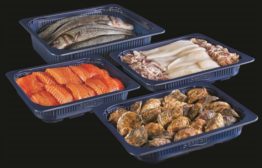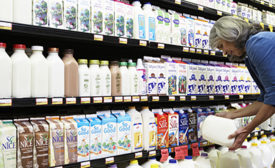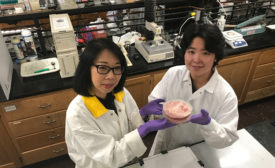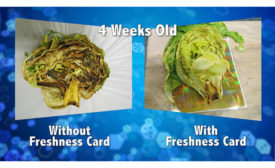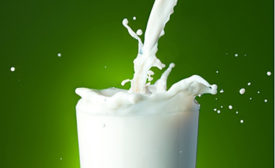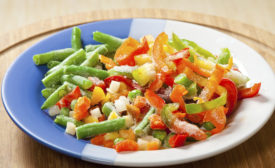Home » shelf-life extension
Articles Tagged with ''shelf-life extension''
Report provides actions to address unsalable goods
The study ranks solutions with a track record of success and provides implementation guidance.
September 28, 2017
Universal Pasteurization announces second annual HPP Summit
The 2017 HPP Summit will feature a wide variety of speakers, panels and educational breakout sessions relevant to food manufacturers, retailers, foodservice providers, packagers and other companies in the food supply chain that are currently or considering taking advantage of HPP.
August 22, 2017
OSU researchers develop water-resistant, antimicrobial edible wrap for food preservation
The film is similar in texture and appearance to plastic wrap, but it is edible and made of a combination of two naturally occurring substances.
June 23, 2017
Research reveals top strategies for reducing $15B in unsaleable consumer goods
Participants identified enhanced shelf life management, effective management of discontinued items and sharing of UPC-level data as among the most effective solutions.
May 3, 2017
Shelf-life extension technology shows food savings
The Food Freshness Card is also effective for shipping containers, walk-in commercial refrigerators, produce markets, storage facilities and more.
October 27, 2016
Rapid, low-temperature process adds weeks to milk’s shelf life
The treatment lowered bacterial levels below detection limits, and extended shelf life to up to 63 days.
July 25, 2016
New technology proves to extend shelf life of fruit, vegetables
Ultimately, it will make the whole production, distribution and sale process of fruits and vegetables more efficient.
May 6, 2016
Elevate your expertise in refrigerated and frozen foods with unparalleled insights and connections.
Get the latest industry updates tailored your way.
JOIN TODAY!Copyright ©2025. All Rights Reserved BNP Media.
Design, CMS, Hosting & Web Development :: ePublishing
